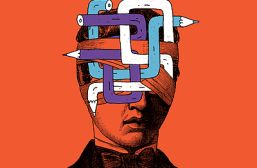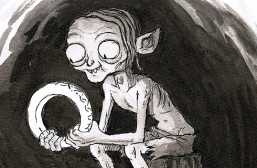Writing in Isolation during a global pandemic
Since the current pandemic has stricken our civilization, writers have been working from home; subsequently, this has affected their creative development and mental health. “One in four older adults, aged 50 to 80, report feelings of isolation, and over 60 percent of adults feel some degree of loneliness.” 1. Combating isolation can be highly challenging for creative people; at the same time, it causes both positive and negative effects and a sense of isolation from other human beings. On a positive note, there are many ways to stimulate the creative mind during the pandemic, such as engaging in online platforms and writing groups; it’s not all hopeless for humanity. Writing in isolation during a pandemic can be challenging and rewarding; establishing a new creative process is essential in generating new ideas.

Negative Effects of Isolation for Writers
Writing in isolation can be overwhelming for even the most experienced authors. There can be adverse effects of this, including mental and physical challenges. Mental health issues can manifest themselves through pre-existing mental illness conditions exacerbating loneliness, isolation, and depression. Long hours seated at a desk can cause physical problems associated with being sedentary including coronary artery disease and even death. “Physical inactivity contributes to over three million preventable deaths worldwide each year (that’s six per cent of all deaths). It is the fourth leading cause of death due to non-communicable diseases.” 2. Writing in isolation can also cause narrative and artistic downsides and get in the way of creativity.
Readers sitting at home want an escape from the ugly reality of life, so writers must create an atmosphere that doesn’t recreate the horrible disaster of the pandemic. Since most writers work from home, there is a constant struggle to come up with stories and material because of the anxiety created by this pandemic; writers may produce little or no content resulting in increased isolation and disconnection with creativity that ultimately leads to frustration and lack of energy. Finally, “there’s the awkward narrative problem of how to turn what some have termed the “boring apocalypse” — a period of stasis that, for the most fortunate, has been defined by staying home and doing nothing — into a gripping story.” 3. For creative people like writers, the mental and physical effects of isolation can slow down their productivity and eventually lead to hopelessness and despair about the pandemic; writers must constantly have inspiration and be connected to the world around them to succeed.

Positive Effects of Isolation for Writers
Despite the negative aspects of writing during a global pandemic, there can be positive effects of isolation on writers. To name a few, writing poetry and attending virtual literary events can be extremely helpful for creativity and mental well-being. When writers work from home, they need inspiration and connection with other human beings to produce decent writing material successfully. One of the ways writers do this is by taking breaks from novel writing and editing and writing more poetry. Because of the disconnection as a result of the pandemic, everyday things happening that seem unreal can best be spoken through the language of poetry. Sometimes expressing feelings and words through poems can be purifying in ways that formal writing doesn’t. According to Garner (2021), “Poetry fractures language, breaks it open, and reworks it into something both nebulous and immediate. It suggests, expresses the inexpressible in ways that plan words would destroy. Poetry became cathartic to me in a way that prose wasn’t.” 4.
Another positive part of writers being isolated at home during the pandemic is attending virtual book events and literary festivals. Writing from home and being by themselves helps writers reflect on their occupations and turn inward; this allows them to explore their curiosity and develop new ideas. “And as a reader, lockdown wasn’t all bad either. Virtual book events meant I could attend launches and literary festivals in across the country and around the world without spending any money or leaving my couch. And I think I read more books in 2020 than I have in any other year in recent memory.” 5. Online book events can be fun and cost-efficient while promoting a writer’s work. During a global pandemic, writing can be challenging and discouraging. Still, many writers have changed their work by trying new methods resulting in new creative processes that have helped their careers.
Combating Isolation for Writers
Writing in isolation can be challenging and rewarding; nevertheless, there are solutions to combat loneliness and create new ideas to improve creativity. A few of these methods have been proven to work; one of them is keeping connections with friends and family while communing with nature. The other is combating isolation through writing poetry. Creative people who work from home need alone time to produce material daily. However, during a global pandemic, writers spend more time in isolation; this can cause mental problems and hold back the creative process. Studies have shown that keeping connections with friends and family creates a balance between work and leisure time; this, in turn, improves mental health and prevents the creative process from deteriorating. At the same time, walking outdoors with groups and communing with nature also enhances mental health while letting the brain and body have a break from the depressing reality of being confined at home during a pandemic. Bahrampour (2022) points out that one author “also doubled down on other coping mechanisms such as tightening connections with friends and family, and communing with nature — remedies many in lockdown have also used to counteract the effects of social isolation — and she learned to be more flexible.” 6. Both methods mentioned above help combat isolation and restore a sense of calm and peace within the soul; writers benefit tremendously from this.
Poetry can also be an effective technique for writers to combat isolation. During a pandemic, people need to connect with others through individual reflection and discussion; poetry is a means of doing this. Xiang et al. state, “Poetry can be a welcoming medium of solace and beauty, reminding us of how we were all irrevocably connected, even in isolation.” 7. Combating The more we are connected through the arts, the more our mental health improves while creating meaningful communities at the same time. If writers need inspiration and help to communicate with the world during a pandemic, solutions like these will heal the soul and cultivate more sharing with others during stressful times.

Hope for Writers
Writing in isolation during a global pandemic can be challenging and rewarding for creative people; establishing methods of combating pitfalls will help writers cope with loneliness and develop new ideas. Today over 60% of adults feel loneliness; connecting with others through things like writing groups, connecting with nature, and writing poetry can restore balance to their lives and recover creative skills. In the future, perhaps there will be fewer pandemics, and writers will be less isolated from the world; we can only hope and continue to pursue the things we love to endure. We are all connected in some form or another; writers have the power to shape the world and educate people, especially during traumatic times. I will end with a quote from the book The Lord of The Rings, “I wish it need not have happened in my time,’ said Frodo. ‘So do I,’ said Gandalf, ‘and so do all who live to see such times. But that is not for them to decide. All we have to decide is what to do with the time that is given us.” 8. —This quote speaks to us appropriately for all generations.
Works Cited
- Xiang, David H (2020) ‘Using Poetry to Combat Loneliness and Social Isolation.’ Scientific American, Scientific American ↩
- Better Health Channel ‘The dangers of sitting: why sitting is the new smoking.’ ↩
- Moss, Sarah (2022) ‘ The Problem With the Pandemic Plot.’ The New York Times ↩
- Garner (2021) ‘Isolation Creation: How the Pandemic Improved My Writing.’ Open Book ↩
- Garner (2021) ‘Isolation Creation: How the Pandemic Improved My Writing.’ Open Book ↩
- Bahrampour (2022) ‘Dumped by Her Husband, an Author Dove into Loneliness and Resurfaced with Lessons for a Pandemic.’ The Washington Post ↩
- Xiang, David H (2020) ‘Using Poetry to Combat Loneliness and Social Isolation.’ Scientific American, Scientific American ↩
- Dunn, Lily (2020) ’11 Literary Quotes That Speak to the COVID-19 Pandemic.’ Book Riot ↩
What do you think? Leave a comment.











I applaud the people writing novels during these coronavirus times as a productive endeavour and am sure there will be a few interesting novels to come out of this.
I enjoy writing novels just because I like the fact that I have no control over them. They have this life of their own once the basic premise and initial characters have been set in motion. The story flies off in several directions at once, and then, somehow, all of the threads knit back together at the end and I end up with a story that totally surprises me.
About a month ago I finished the first draft of a sequel to a book I wrote a few years ago. It’s now stewing for a few months before I start to edit the thing. I’m still amazed at the revelation that emerged after 400+ plus pages of having little clue about where it was all going.
After my last 400 page novel, I swore I’d never go beyond 200 again. It’s so much work to edit 400 pages. I wasn’t happy when its sequel got to 432.
And this is a hobby just for me. No one gets to read them. I can’t imagine anyone ever getting through one. I find it so hard to find stories that I like, written in a way that I like, so I set my mind in motion to come up with something that I find interesting and entertaining.
Have you thought of self-publishing? Someone might like to read them. When I put my first book up it was really scary, but I’m so glad I did it. 🙂
Thanks. Maybe one day once I’ve learned to write a bit better than a dyslexic sixth former. I think the stories are good, but the words on the page look like a living room full of delicate woodwork that’s been decorated by someone who’d never touched a paint brush before.
Thanks anyways, I keep trying. – Richard
Thank you for the nice comment. I’ve never thought of self-publishing, but that sounds like a great way to get my writing out into the world. Writing takes time and work! – Richard
I’m going to write “Covid 18 – The Virus the World Forgot”
It’s a sad tale of misery and neglect.
Covid 2020 – because hindsight …
If you write because you want to, you may as well find something more diverting to do with your time; most serious writers (poets or prose), if they dug deep and admitted it write because they have to. It’s a driven thing, not a dilettante’s thing.
If you want to write, do it. Enjoy it, or, sometimes agonise. I’ve had a (very ) few short stories, poems, articles published and finished my first novel after 20+ years. The kids and other half say it’s wonderful but it’s basically just OK and it’s still in the drawer. So damn worried about cancer in the family I can’t write — dive into someone else’s book and pull the book in after me. Coward.
Congrats on finishing your novel, that’s a great achievement.
In my experience the most important thing is to have both of;
1) Something to say, and
2) An interesting way of saying it
I think you can get away with just 2) if you’re a genius but remember: you are not a genius.
Mum says I’m a very special boy.
I hope people do write. Most of us are literate and have computers instead of a typewriter.
However I wouldn’t start with a novel – too much hardwork and planning.
Why not write a sketch? Like the old ‘one page essay’.
You have to find it fun.
It could be an event in your life, either complete fact or a bit fiction.
It is a bit weird that people always seem to talk about writing a novel rather than starting with short stories. Might possibly be a sign that they’re more in love with the idea of ‘being a writer’ than… well, writing…
Short stories are much much harder than novels. If you want to do them justice, anyway. They’re a good practice for the art of sitting down and writing, but they’re not usually good.
(Have written both, and some very bad poetry. Novel no.4 is with an editor, but 1-3 were rubbish in the way that practice novels always are. One single short story, in ~35 years, has come close to the quality of novel 4.)
If something is ‘too much hard work’ for you, best leave writing alone.
Writing a decent novel is incredibly difficult and requires equal amounts of talent, patience, sweat, world experience, craft…. all my creative writing students used to come in saying ‘I’m halfway through a novel and I’m hopelessly stuck!’ And I used to say, yup, that’s what writing a novel IS. Hopelessly stuck. I’m giving it up. It’s crap. Nothing’s right. It’s not working. Sometimes it’s as much fun as digging a hole. And if you’re lucky, one day, after months of work, maybe, it comes right. Unless it doesn’t. Nothing beats the feeling when it does though.
Between 1993 and 1998 I tried to write a few books.
There was a book of short stories, a novel about art set in the near future and something about a modern day vampire. I completed the first two and abandoned the third.
Around about 2015 I took an old PC to the dump and after I threw it into the skip I realised it contained the data for the books. It was a very healing moment.
I had thrown myself against a brick wall repeatedly – not understanding that I am not a novelist. I wrote not because I wanted to *say something* (I have nothing to say) but for superficial reasons – to do with wanting to be a novelist without understanding what it meant.
Why did I stop writing? I saw a mass of books on sale under a bridge in London, the one near the South Bank centre, where the novels reviewed with breathless excitement the previous year were on sale for two quid. I also stopped writing because trying to write a novel was more painful than not writing one. I turned to drawing and painting which I was much better at any way.
Who did I think I was? Don de Lillo? Martin Amis?
I still write but it´s not not novels. We don´t need more novels. Write something else unless you think your novel really is good.
Just reading the above was quite fun. Don’t let all that storytelling ability go to waste…
Thank you! I still write a lot but not novels. As an academic I write for a living. Elsewhere I am part of a blog team and produce a lot there; my personal notebooks are another output and finally, I am also a commenter here (and am not proud of my sub-editing in this medium). In a way the novel is a distraction (it was for me). Some kids want to be rock stars and I wanted to be a novelist for the same silly sort of reason. It´s good to have learned something along the way!
Or write for a different medium. Software, for example. Good software also demands creativity, innovation, and an attention to detail, and when it works as intended you get just as much of a frisson as Dr Frankenstein when he said “it’s alive.”
And if it’s any good, it’s far more likely to be seen than a book that can’t attract a publisher or that you go vanity press over. And the cost of a 10,000 copy run of software is next to nothing.
Yes, I can see that though the software is not so good at capturing the subjective condition of being. But maybe that´s not your goal in which case, yes to all of the above. I found painting and drawing to be very satisfying: I can see the result and you can put a lot in an image and do lots of them (but don´t expect to sell it or even display it!)
i’ve been working on my first novel since 1989 – so far at 2,700 words
Do you mean it is thirty years since you completed your previous novel, or that you have been working for thirty years on your first? One useful tip for clear writing is to carefully check for possible misinterpretations. Two suggestions for your new opening:
A) During the thirty years leading up to the Great Crisis, my urge to get started on another novel was negated by the shadow of procrastination…
B) During the thirty years leading up to the Great Crisis, I was toiling on my first novel, slowly, as if waiting for some experience that might supply some element that I sensed was lacking…
Select as appropriate.
I am trying to get into practice for a possible new career as editor. I have always enjoyed the post-apocalyptic genre.
I am in a similar position, not sure how many words but 5 chapters in. Though it is war and peace.
I wrote a novel in 2010. No one read it. Not even my wife. Beat that.
Somehow getting ideas that I could write and had something to say, I wrote a book when I was 12 in 1969 which was about adventures of a bunch of kids who went to stay with great aunt Agatha and was a load of rubbish. It was called The Enchanter. I came to my senses and never sent it to publishers. My elder sister was a brilliantly talent artist, and she illustrated the ‘book’ for me with fabulous drawings which was the only good part of it and I kept the book and treasure it for that reason.
Writing is like going to the gym, you need to keep at it to keep your skills tight. Now I’ve never set foot in a gym, but I can use that simile because I’ve been brain bulking for the last decade.
I definitely agree with this, 100%. During the pandemic lockdown I burned out (having kids home from school and trying to work), and my productivity fizzled out. The brain is a muscle for sure and I haven’t exercised it in a very long time, and I’m definitely feeling it while trying to get back into it.
Absolutely. Consistency is key. Like exercising too, although there are overall benefits it also depends on what you’re doing. Writing an essay is a completely different beast than a novel. Some skills transfer, but when you switch the type of writing you’re often having to take a real step back at first.
I tried to write a book before realising I couldn’t be arsed.
It seemed like a lot of work to me.
It’s a massive amount of work. So it only makes sense to write if you actually enjoy it.
I’ve often thought it mightn’t be all that hard to write something the length of an average novel, but I don’t think anyone would want to read what I came up with. And I’m sure I’d get bored with the writing before too long, too.
And you’re any good at it, which most of us aren’t.
I’d love to have time to write a novel, but I’m supposed to work from home AND home school my daughter AND run errand for my parents in law who are stuck at home. Thankfully I work part time and only have one child, I don’t know how others with more work and more offspring do it!
I’m finding it hard to read, never mind write.
It’s interesting because professional writers are always talking about how they need “alone-time” and to just block out the entire world to get any writing done. Theoretically, they had the perfect opportunity to do this during the pandemic, but it doesn’t seem to have worked for everyone. Maybe it had something to do with the stress and anxiety that they were under at the time.
I think the pandemic was good for some writers but not others! I wrote an entire novel, whereas some of my friends struggled with motivation. Interesting article
It’s so interesting how these habits continue post the lockdowns
I wish I could go back in time to the beginning of the pandemic and begin writing a novel or something. I think it would have been difficult to motivate myself, but would have been a better use of my time.
Interesting article. I revised and edited a novel and completed a PhD during the pandemic. Now I am both missing the writing life, and slowly realising how isolating both the PhD and the pandemic have been. I’ve also been convinced that writing more poetry and getting into nature will be key for me, as well as spending time with cats and loved ones 🙂
Writing in Covid, for me at least, produced some of the most whimsical surreal stuff I’ve written. Was any of it good? Not really. But has it changed the way I’ll write for a while? Absolutely.
I like this analysis and the suggestions. As I read through your article, my initial thought was that most of what you discuss likely applies to many creative professions. And upon even further thought, I would imagine that this can even speak to many professional — even corporate — positions.
I was surprised to see some authors writing about the pandemic during the worst of it, though I don’t know who’d be jumping to read those books now that we’ve experienced one.
I was one who couldn’t do any writing or reading during the pandemic. It was like the light got switched off and it’s still off. I’m the only person in my family who writes, and they don’t understand what it’s like to be a writer….
This was an interesting read. I hope my brain switches on soon and I’m able to start creating stories again.
As a theatre-maker, it was interesting talking to a lot of playwrights during the pandemic, about how it impacted them: so many of them rely on the liveness of feedback from actors in spaces. A tricky time.
I think writing has become a life saver for many people when isolation happened. It helped them adapt to the new realities of life, overcome stress, and possibly even try something new!
You statement, “writers must create an atmosphere that doesn’t recreate the horrible disaster of the pandemic,” inspired some personal reflection on my own pandemic experience. Looking back, I realise that all I seemed capable of writing was a recreation of my circumstance, in all its drab and suffocating shades. This was the case during two different lockdowns, in which my mind felt as restricted as my body. In a time where life was more about distraction from enclosure rather than passion, it was difficult to think outside the box I lived in.
The shift between writing and the first edit could be an opportunity to ease isolation for writers within some reach of each other, if their timeframes match.
My writing is a reflection of the environment I am in, physically and within my own head. Personally Isolation brings out both good and bad content. I think about my writing capacity as needing both isolation (to structure my words) and socialisation and being in nature (to capture the words)